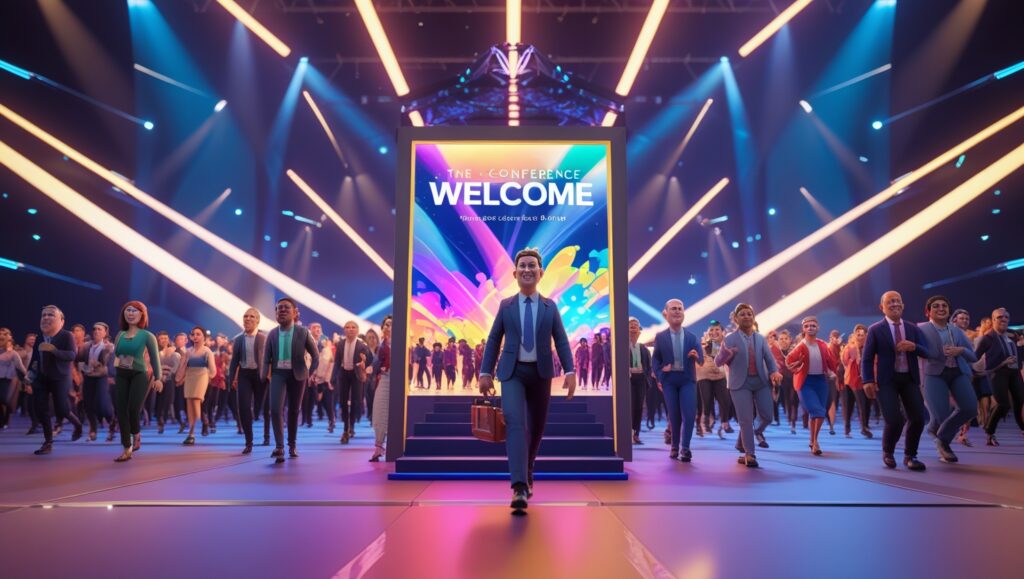Did you know that more than 20,000 archaeological discoveries are made globally each year, reshaping our understanding of human civilization? The Archaeology Conference offers a unique platform for researchers, historians, and enthusiasts to share groundbreaking findings, innovative techniques, and cultural insights.
This premier gathering connects professionals from academia, museums, cultural institutions, and heritage organizations. From ancient civilizations and excavation technologies to cultural preservation and public archaeology, the Archaeology Conference is where the past meets the future of historical research.
Why the Archaeology Conference Matters
The Archaeology Conference is more than a scientific meeting—it is a space for global collaboration, cultural exchange, and policy influence.
Key Benefits of Attending
- Knowledge Exchange: Discover the latest research on ancient civilizations and heritage preservation.
- Networking Opportunities: Connect with archaeologists, museum curators, and cultural leaders.
- Innovative Methods: Explore new excavation tools, dating techniques, and digital archaeology.
- Policy Impact: Contribute to global discussions on heritage protection and archaeological ethics.
For both seasoned archaeologists and emerging scholars, the conference is a vital event for advancing research and protecting cultural legacies.
Major Themes at Archaeology Conferences
1. Ancient Civilizations and New Discoveries
- Excavations revealing lost cities and artifacts
- Studies on early human migration and settlement patterns
- Insights into ancient trade, religion, and governance
2. Archaeological Technology and Methods
- Use of drones and 3D scanning in excavations
- Advances in radiocarbon dating and DNA analysis
- Digital archaeology and virtual reconstruction of heritage sites
3. Cultural Heritage and Preservation
- Safeguarding artifacts from looting and illicit trade
- Managing archaeological sites in conflict zones
- UNESCO policies and world heritage protection
4. Public Archaeology and Education
- Engaging communities in archaeological projects
- Role of museums in making history accessible
- Storytelling as a tool for cultural heritage education
5. Climate Change and Archaeology
- Rising seas and their impact on coastal heritage sites
- Preservation challenges in changing climates
- Archaeology’s role in understanding environmental history
Who Should Attend the Archaeology Conference?
This event attracts a wide range of professionals, making it highly interdisciplinary.
- Academics & Researchers: Present and discuss peer-reviewed studies.
- Students & Emerging Scholars: Network and learn from leading experts.
- Museum Curators & Conservators: Gain insights into heritage management.
- Policy Makers: Shape cultural preservation laws and guidelines.
- Journalists & Media Professionals: Access new stories and research breakthroughs.
- Event Organizers & Planners: Benchmark best practices for academic events.
How the Archaeology Conference Shapes Global Perspectives
Driving Academic Innovation
Sessions often introduce groundbreaking findings that reshape historical narratives and inspire further research.
Protecting Cultural Heritage
Conferences bring together governments, NGOs, and researchers to combat illicit trafficking and promote ethical practices.
Strengthening Global Collaboration
By uniting participants from around the world, the Archaeology Conference builds partnerships that cross borders and disciplines.
Inspiring Public Engagement
Through workshops and exhibitions, the event makes archaeology more accessible, bridging the gap between research and the general public.
Tips for Maximizing Your Experience
Attending an Archaeology Conference requires strategy to gain maximum value.
- Plan Ahead – Review the agenda and choose sessions that align with your research interests.
- Participate Actively – Ask questions, share findings, and join panel discussions.
- Network Strategically – Connect with peers and mentors during coffee breaks and poster sessions.
- Document Insights – Take notes and compile references for future research or publications.
- Use Digital Resources – Many conferences offer online archives, recorded sessions, and digital abstracts.
Frequently Asked Questions (FAQ)
Q1. What is the Archaeology Conference?
It is an international event where archaeologists, researchers, and cultural experts gather to share discoveries, methods, and preservation strategies.
Q2. Who can attend the Archaeology Conference?
The event welcomes academics, students, policymakers, museum professionals, and media specialists.
Q3. What are the main topics covered?
Themes typically include ancient civilizations, archaeological technologies, heritage preservation, and public archaeology.
Q4. How can I register for the conference?
Registration details are usually published on official websites or platforms like Conferences Daily.
Q5. Why is the Archaeology Conference important for cultural heritage?
It supports collaboration to protect heritage sites, improve excavation methods, and ensure ethical archaeological practices worldwide.
Conclusion
The Archaeology Conference is more than an academic event—it is a catalyst for discovery, preservation, and cultural exchange. By attending, participants gain access to cutting-edge research, innovative technologies, and international networks that shape the future of archaeology and cultural heritage.
Whether you are a scholar, policymaker, or heritage professional, this conference offers unparalleled opportunities to explore human history, safeguard cultural treasures, and collaborate globally.
👉 Secure your spot today by registering through Conferences Daily and join the global dialogue shaping the future of archaeology.















